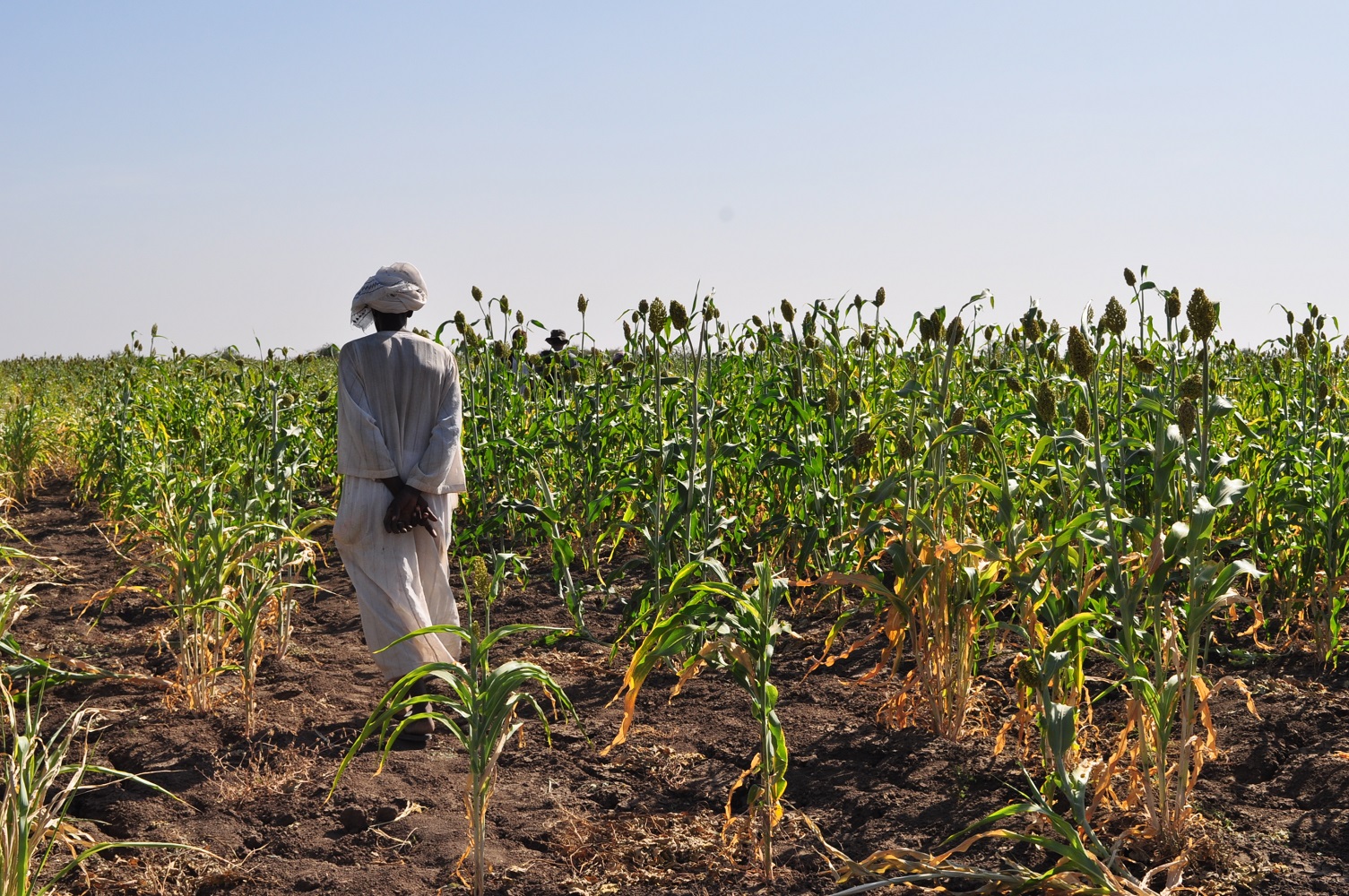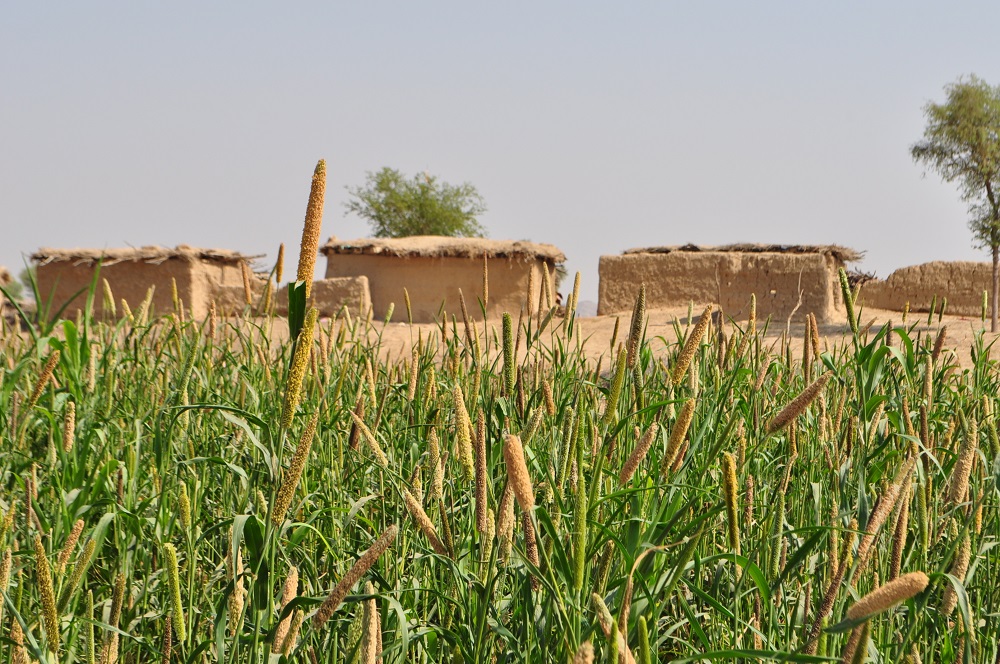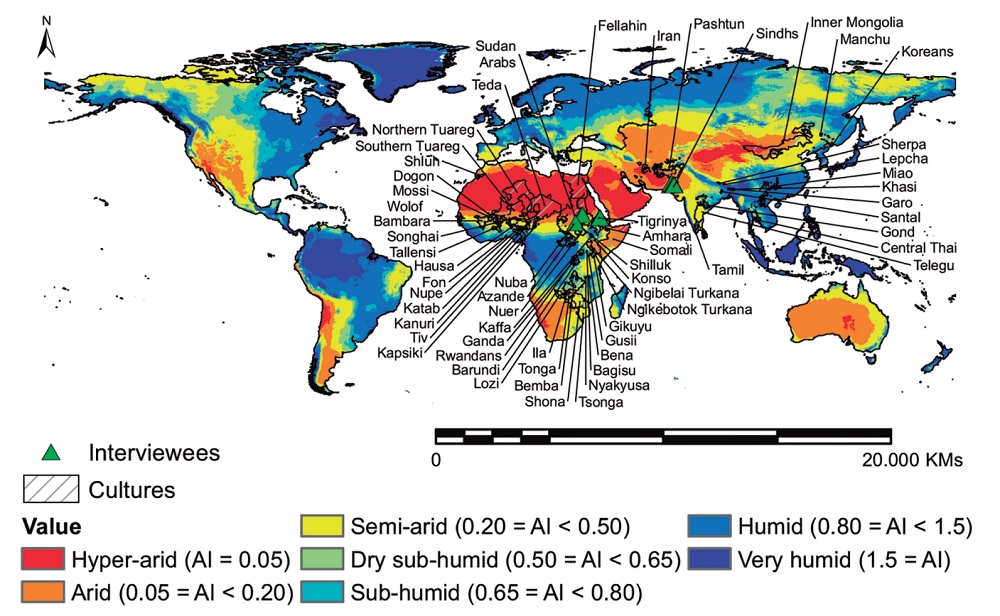Millet and sorghum cultivation may provide an answer to rising levels of aridity linked to climate change
Millet and sorghum cultivation may provide an answer to rising levels of aridity linked to climate change
Millet and sorghum cultivation may provide an answer to rising levels of aridity linked to climate change
A study published in PLOS ONE by members of the CaSEs research group of the UPF Department of Humanities demonstrates how traditional small-scale rainfed agriculture provides information on sustainable agricultural practices. The results of the research, which combines ethnographic and ecological data and maps possible crop areas of finger millet, pearl millet and sorghum on a global scale, question the use of total annual rainfall as an index to explain the viability and variability of agricultural systems in drylands.

A study by researchers from the UPF Culture, Archaeology and Socio-Ecological Dynamics Research Group (CaSEs), recently published in the journal PLOS ONE, provides a global assessment of traditional small-scale farming practices for three of the world’s most important drought-tolerant species: finger millet, pearl millet and sorghum.
The research, which combines already published ethnographic data and new information collected in the field, demonstrates how traditional small-scale rainfed agriculture provides novel information on sustainable agricultural practices, at the intersection between traditional ecological knowledge and academic knowledge.
Abel Ruiz Giralt: “Our work advances our understanding of how human communities developed sustainable and resilient agricultural strategies over time. This is especially significant in the current context of climate instability and population growth, which requires immediate action”
Finger millet, pearl millet and sorghum are primary staple crops in drylands, and their production dates back more than 5,000 years. However, compared to other crops, the production of millet and sorghum has progressively decreased in the last 50 years.
In the current context of climate change and rising levels of aridity around the world, research into local practices and traditional crops is critical. Traditional ecological knowledge provides a very important source of information, since it encompasses the exploitation of locally available resources, and is the result of processes of long-term adaptation to the environment.

“Our work advances our understanding of how human communities developed sustainable and resilient agricultural strategies over time. This is especially significant in the current context of climate instability and population growth, which requires immediate action”, says Abel Ruiz-Giralt, first author of the article, together with Marco Madella, Stefano Biagetti and Carla Lancelotti, all researchers at the UPF Department of Humanities and members of the CaSEs Research Group.
The authors note that traditional practices to increase crop yields are based on renewable resources, contrary to the widespread and short-term solutions often used by supranational institutions, which cause significant damage to both crop biodiversity and soil conservation.
These traditional practices enable increasing productivity and minimizing crop failure, without sacrificing long-term sustainability and resilience. “Our study offers an alternative view on possible ways to integrate traditional knowledge into scientific and political programmes, with the aim of providing solutions for food security in low and middle-income arid areas”, the researchers assure.
Creating new models to explain traditional farming practices

Classification of the world’s regions classification according to aridity index values, territorial distribution of ethnographic groups (eHRAF) according to GREG polygons (Geo-Referencing of Ethnic Groups dataset)
In their research, the authors build and test models that show the interaction of ecological and geographic variables, which serve to explain traditional agricultural practices and the variability of existing systems in this field, as well as mapping the possible cultivation areas of finger millet, pearl millet and sorghum on a global level.
They state: “We have found that the relationship between total annual precipitation and the viability and variability of agricultural systems in drylands around the world is not as strong as was previously thought”. And they add: “Other factors such as the length of growth cycles, the availability of soil nutrients and water retention capacity seem to be far more determinant in the configuration of traditional agro-ecosystems”, they assert.
The researchers have chosen to use a comparative global approach, which allows simplifying complex ethnographic data, since they have reduced intracultural variability through generalizations based on the most common practices. For this reason, they have used the ethnographic data available in the eHRAF World Cultures database as the main source of information.
“We have found that the relationship between total annual precipitation and the viability and variability of agricultural systems in drylands around the world is not as strong as was previously thought”
The eHRAF World Cultures database contains a large number of documents that describe activities derived from traditional ecological knowledge (TEK) from around the world, data that come from ethnographic studies carried out unevenly during the last two centuries. “Despite the inevitable distortion generated by the use of data collected under different theoretical and methodological perspectives over more than 150 years of ethnographic research, the eHRAF database continues to be one of the most effective tools for conducting global comparative research, due to the wealth of information it supplies”, Abel Ruiz-Giralt states.
The models presented in the study, which include various environmental predictors in their design, simplify the relationships and interactions between humans and the environment, and can therefore be useful to understand the underlying general dynamics involved in the study and development of traditional agricultural systems. “We believe our paper is a timely and valuable contribution to this debate, as it provides new data on smallholder practices at the intersection of traditional ecological and academic knowledge”.
This work is part of the research project RAINDROPS-Resilience and Adaptation in Drylands, funded with a European Research Council Starting Grant (ERC-Stg 759800), with Carla Lancelotti as its principal investigator.
Reference work: Abel Ruiz-Giralt, Stefano Biagetti, Marc Madella, Carla Lancelotti (February 2023). “Small-scale farming in drylands: New models for resilient practices of millet and sorghum cultivation”, PLOS ONE
